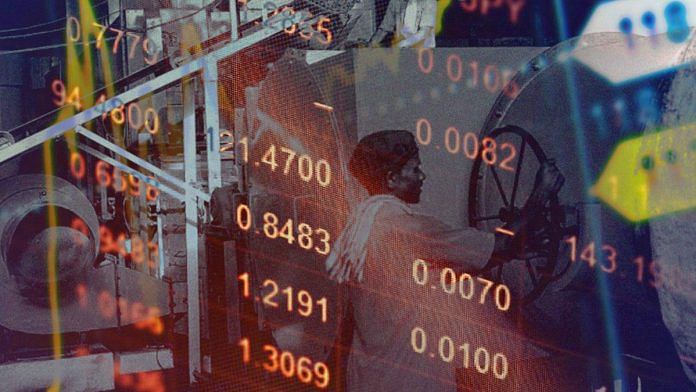India’s slowing economy could easily be the fall guy for Prime Minister Narendra Modi government’s struggles with meeting tax targets. But there’s another culprit: tax evasion.
A nationwide consumption tax, introduced in 2017 and widely regarded as a tool to improve tax compliance and boost economic growth, may have failed to plug evasion, according to a report by the Comptroller and Auditor General of India, the auditor of government accounts. The number of Goods and Services Tax returns filed have declined, it showed.
Poorer tax compliance adds to the government’s revenue collection woes amid a broader slowdown in the economy, where demand for everything from cookies to cars has taken a knock. Consumption, which contributes almost 60% to India’s gross domestic product, has been largely hurt by a shadow banking crisis, which in turn has dragged growth down to a five-year low.
The consumption tax was expected to bring in an anti-evasive tax regime, but there are numerous cases of bogus billings, tax evasion and fake invoicing, according to tax consultancy and auditing firm PricewaterhouseCoopers LLP. “I wouldn’t expect this kind of reform and tax regime to become stable quickly,” Pratik Jain, a partner at PwC India, said.
Also read: Modi govt planning to raise income tax exemption limit to revive economy
The government’s total tax revenue in the last financial year ended March fell short of target by 1.7 trillion rupees ($24 billion), according to provisional numbers. That’s due in part to GST collection trailing monthly target for most of the year.
A revenue miss again will put the fiscal deficit goal of 3.3% of GDP at risk, and limit the government’s ability to spend on infrastructure and welfare programs.
The finance ministry expected GST to help boost GDP growth by as much as two percentage points. Despite lowering of the GST rate to revive consumption, economic expansion has slowed, coming in at 5.8% for the quarter ended March.
“This elephant has to move fast,” said Sacchidananda Mukherjee, a professor at National Institute of Public Finance and Policy in New Delhi. “It will take time compared to developed countries where they have a good IT platform and are more homogeneous.” – Bloomberg
Also read: Nirmala Sitharaman’s first budget should tell the truth about India’s economic crisis




The biggest mode of evasion has not been mentioned in the report of the CAG. That is physical evasion – transporting of unaccounted goods from manufacturer to retailer. If goods can be transported to the retail shop without getting accounted for, nobody has to pay anything except a small percentage as bribe to the checking squads on the route. It is a small percentage because checking squads have no capability to check all vehicles to detect the hidden goods they carry. Bonafide travellers on trains and airlines also carry low volume high price goods. This mode of evasion is growing because of the divided responsibility between the states and the center. GST should be withdrawn and the earlier system reintroduced as soon as possible to save government revenue.